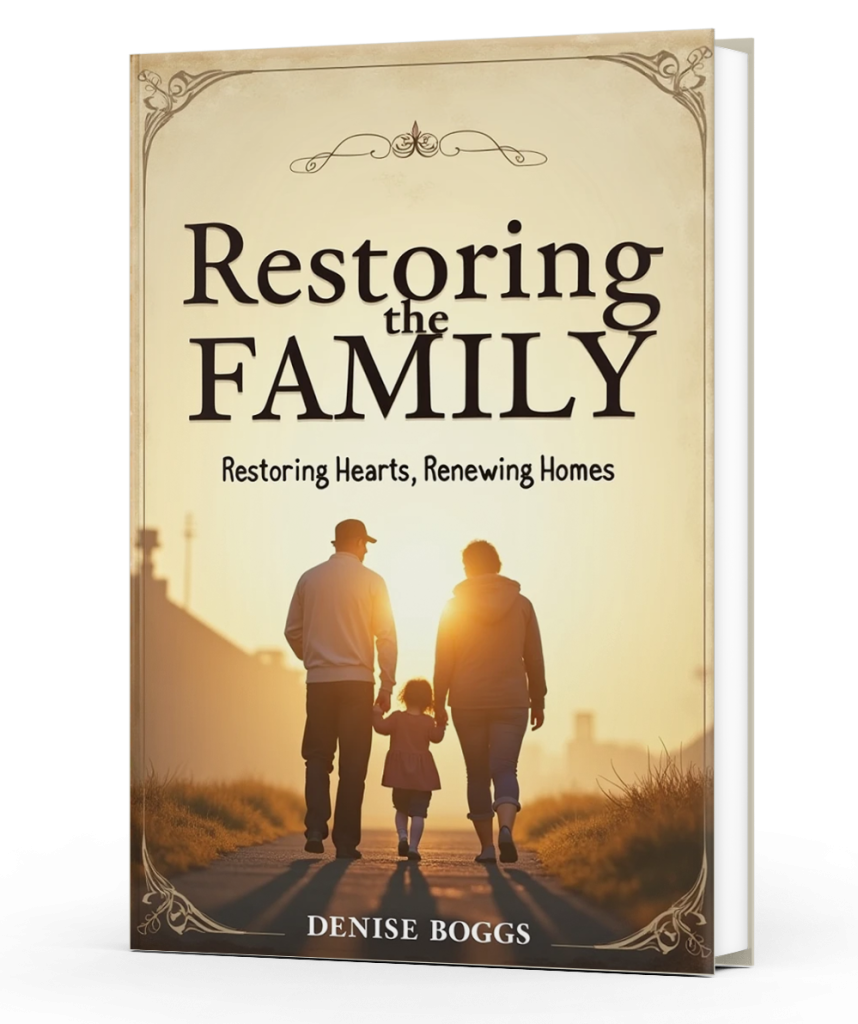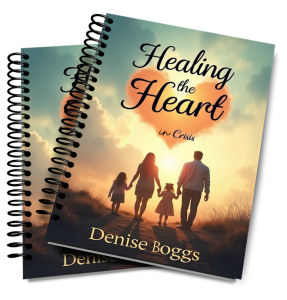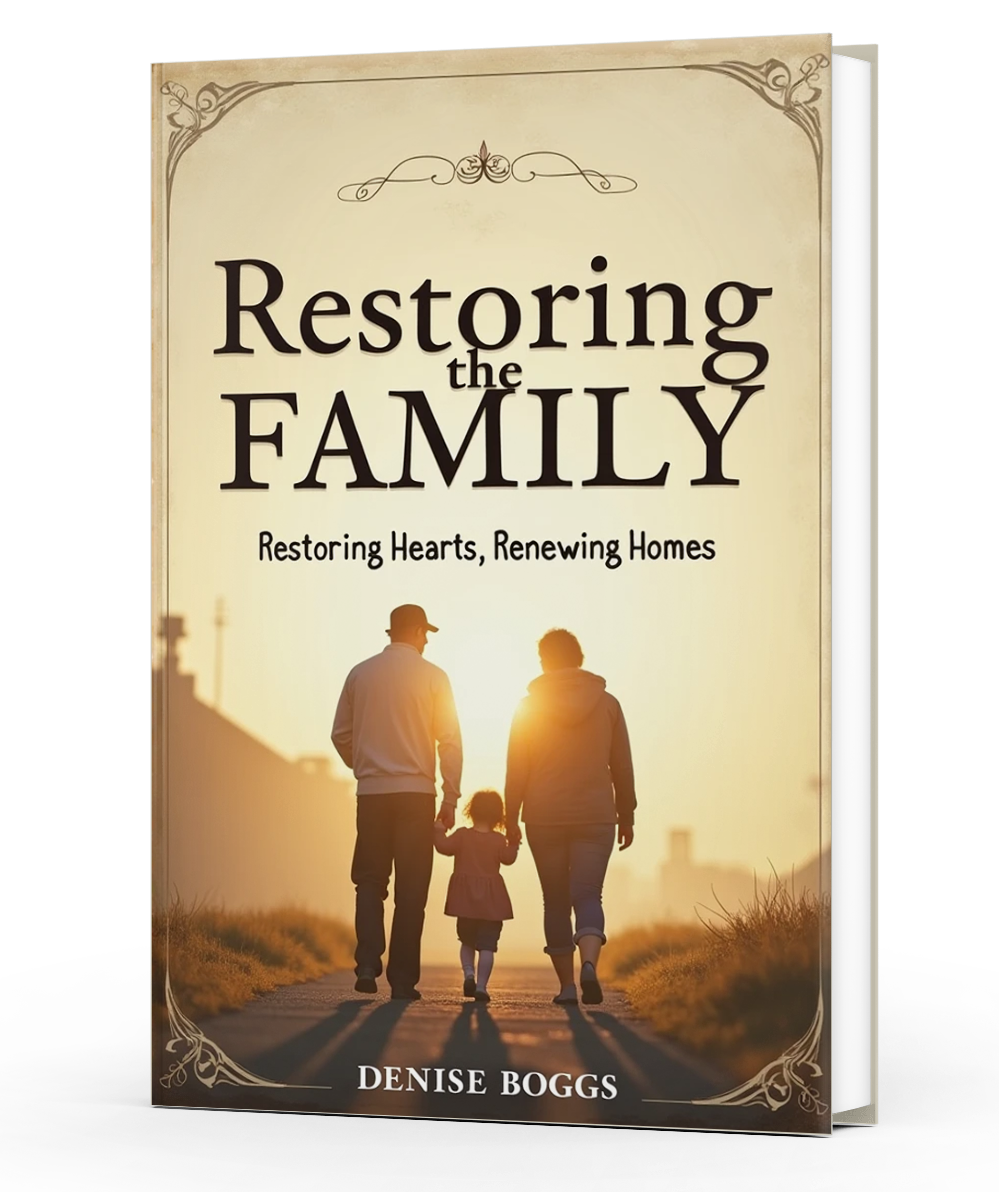
by Joseph | Jul 11, 2025 | Sharing
Like many people, I have often battled with life’s challenges. I’ve struggled at times to embrace what I believe is God’s call and assignment – and I’ve often questioned my own abilities to handle the positions I’ve been entrusted. It’s been encouraging to study and understand how Joseph handled his Divine assignment.
In times of crisis, true leadership emerges not from titles or position, but from divine preparation and positioning. Perhaps no biblical account illustrates this more powerfully than Joseph’s rise to authority in Egypt. Here was a young Hebrew slave, suddenly elevated to become second only to Pharaoh himself. “You shall be over my house, and according to your command all my people shall do homage” (Genesis 41:40).
But what caught Pharaoh’s attention wasn’t just Joseph’s ability to interpret dreams – it was the spirit of divine wisdom that flowed through his leadership. “Then Pharaoh said to his servants, ‘Can we find a man like this, in whom is the Spirit of God?'” (Genesis 41:38). This reveals our first crucial insight: true authority flows from God’s presence in our lives, not from our own capabilities.
Consider the extraordinary transition. One day, Joseph was a prisoner; the next, he held the keys to Egypt’s survival. “See, I have set you over all the land of Egypt. Then Pharaoh took off his signet ring from his hand and put it on Joseph’s hand, and clothed him in garments of fine linen” (Genesis 41:41-42). This wasn’t just a promotion – it was a divine positioning for purpose.
The Foundation of Divine Authority
Notice what preceded Joseph’s elevation. Through years of betrayal, slavery, and imprisonment, God was building character that could handle crisis-level authority. “Until the time that his word came to pass, the word of the Lord tested him” (Psalm 105:19). Leadership capacity is forged in the furnace of trials.
Joseph’s response to his sudden authority reveals several crucial leadership principles:
- He immediately took action: “Then Joseph went out from the presence of Pharaoh and went through all the land of Egypt” (Genesis 41:46). True leaders don’t wait for perfect conditions – they move with purpose and urgency.
- He implemented systematic solutions: “Let them gather all the food of these good years that are coming and store up the grain” (Genesis 41:35). Vision without organization is just dreaming.
- He thought beyond the immediate crisis: “The food shall be as a reserve for the land for the seven years of famine” (Genesis 41:36). Leaders must see beyond current circumstances to prepare for future challenges.
Embracing Full Authority
One of the most striking aspects of Joseph’s leadership was his complete embrace of the authority given to him. He didn’t shrink back with false humility or hesitate with self-doubt. When Pharaoh said, “Without your permission no one shall raise his hand or foot in all the land of Egypt” (Genesis 41:44), Joseph accepted this authority as a divine responsibility.
This teaches us something profound about godly leadership: when God positions us for purpose, false humility can be as dangerous as pride. “For God has not given us a spirit of timidity, but of power and love and discipline” (2 Timothy 1:7).
Leading Through Chaos
When the famine hit, Joseph’s leadership truly shined. “When all the land of Egypt was famished, the people cried out to Pharaoh for bread; and Pharaoh said to all the Egyptians, ‘Go to Joseph; whatever he says to you, you shall do'” (Genesis 41:55).
Notice several key qualities:
- He remained calm in crisis: There’s no record of Joseph panicking or wavering. His preparation gave him confidence.
- He administered with wisdom: “Joseph opened all the storehouses” (Genesis 41:56). He didn’t release everything at once but managed resources wisely.
- He maintained perspective: Even in managing a crisis, he never forgot that he was serving God’s larger purpose: “God sent me before you to preserve life” (Genesis 45:5).
The Divine Pattern of Authority
Joseph’s leadership reveals a pattern for those God calls to lead:
- Divine Preparation: “The plans of the heart belong to man, but the answer of the tongue is from the Lord” (Proverbs 16:1). God prepares us through experiences we often don’t understand at the time.
- Divine Positioning: “And who knows whether you have not attained royalty for such a time as this?” (Esther 4:14). God positions us strategically for His purposes.
- Divine Purpose: “For we are His workmanship, created in Christ Jesus for good works, which God prepared beforehand” (Ephesians 2:10).
Taking Full Charge of Divine Assignments
When God gives us an assignment, He also gives us the authority to complete it. Like Joseph, we must:
- Accept the authority: Don’t minimize or shrink from what God has given you to do.
- Act decisively: “Whatever you do, do your work heartily, as for the Lord rather than for men” (Colossians 3:23).
- Administer wisely: Lead with both confidence and humility, knowing the authority comes from God.
The Heart of True Leadership
Joseph’s ultimate success wasn’t just in saving Egypt – it was in fulfilling God’s larger purpose of preserving His people. “You meant evil against me, but God meant it for good in order to bring about this present result, to preserve many people alive” (Genesis 50:20).
This reveals the heart of true leadership: it’s not about our elevation but about God’s purpose. When we embrace divine authority with this perspective, we lead not from position but from purpose.
Let us pray: Father, like Joseph, help us to embrace the full authority You give us for Your purposes. Remove false humility and fear that would hold us back from fully stepping into Your assignments. Grant us wisdom to lead in times of crisis, keeping our eyes fixed on Your larger purpose. Help us to lead with both confidence and humility, knowing that all authority comes from You. In Jesus’ name, Amen.
Remember: When God gives you an assignment, He also gives you the authority to complete it. Don’t shrink back – step fully into what He has called you to do. Your leadership, like Joseph’s, might be the very means through which God preserves and protects His people in times of crisis.

by Joseph | Jul 11, 2025 | Sharing
“The wise heart will know the proper time and procedure. For there is a proper time and procedure for every matter.” – Ecclesiastes 8:5-6 (NASB)
Imagine the whispers in Egypt’s marketplaces. Picture the sideways glances and subtle head-shaking as Joseph ordered the construction of yet another granary during a time of unprecedented abundance. “Why store so much when the harvests are plenty?” they must have wondered. “Surely this Hebrew dreamer has lost his mind.”
A thousand years earlier, the same whispers had followed Noah. Year after year, the master shipbuilder labored under cloudless skies, constructing an ark for a flood no one could imagine. Century after century, this story of steadfast preparation would echo through time, speaking to those rare souls who dare to prepare for what others cannot see.
The Loneliness of Divine Foresight
“By faith Noah, being warned by God about things not yet seen, in reverence prepared an ark for the salvation of his household, by which he condemned the world, and became an heir of the righteousness which is according to faith.” – Hebrews 11:7 (NASB)
There’s a unique kind of loneliness that comes with divine foresight. Noah felt it with every hammer stroke that echoed across dry land. Joseph experienced it as he systematically stored grain during years of plenty. Even the prophet Elijah understood it when he declared a drought under clear skies.
These men share a common thread: they acted on God’s wisdom when it appeared foolish to everyone else. Their stories teach us that godly preparation often looks like folly to a world drunk on temporary abundance.
The Weight of Sacred Knowledge
“The fear of the Lord is the beginning of wisdom, and knowledge of the Holy One is understanding.” – Proverbs 9:10 (NASB)
Consider Joseph’s position. God had revealed through Pharaoh’s dreams what no economist could predict: seven years of abundance followed by seven years of devastating famine. This knowledge was both a privilege and a burden. With revelation came responsibility—the responsibility to act while others remained comfortably oblivious.
In our own time, we too may feel the weight of understanding seasons. When God opens our eyes to see beyond current prosperity, it carries an obligation to act. Like Joseph, we might find ourselves taking steps that others consider excessive or unnecessary.
The Courage to Look Foolish
“For the message of the cross is foolishness to those who are perishing, but to us who are being saved it is the power of God.” – 1 Corinthians 1:18 (NASB)
Perhaps the greatest test in preparation isn’t the work itself—it’s enduring the skepticism of others. When Noah built the ark, he wasn’t just constructing a vessel; he was building a testimony. Every plank laid was a declaration of faith in God’s word over popular opinion.
Joseph faced similar challenges. Imagine explaining to Egyptian officials why they needed to systematically store grain during the most prosperous period in memory. His position as Pharaoh’s appointed leader didn’t shield him from questioning glances and doubtful murmurs.
The Hidden Wisdom in Preparation
“But God has chosen the foolish things of the world to shame the wise, and God has chosen the weak things of the world to shame the things which are strong.” – 1 Corinthians 1:27 (NASB)
There’s a profound irony in how God’s wisdom often appears. Noah’s ark seemed unnecessary until the first raindrop fell. Joseph’s granaries looked excessive until the famine began. The five wise virgins’ extra oil appeared wasteful until the bridegroom delayed.
This pattern reveals a crucial truth: Godly preparation often seems excessive until it becomes essential. Like a life insurance policy, its value isn’t apparent until it’s needed. Yet when that moment comes, the difference between those who prepared and those who scoffed becomes stark indeed.
The Prosperity Paradox
“A prudent person foresees danger and takes precautions. The simpleton goes blindly on and suffers the consequences.” – Proverbs 27:12 (NASB)
Here’s a startling insight from Joseph’s story: The greatest threat to preparation isn’t adversity—it’s prosperity. During abundance, preparation looks unnecessary. The marketplaces are full, the crops are plenty, and the future seems secure. Yet it was precisely during Egypt’s most prosperous period that preparation was most crucial.
This paradox speaks powerfully to our time. When markets are strong and shelves are stocked, the call to prepare sounds like paranoia. But prosperity has always been God’s preferred time for preparation. The wise steward knows that abundance is not an invitation to indulgence but an opportunity for preparation.
The Ministry of Preparation
“And God is able to make all grace abound to you, so that always having all sufficiency in everything, you may have an abundance for every good deed.” – 2 Corinthians 9:8 (NASB)
What’s often overlooked in these biblical accounts is how personal preparation became public provision. Noah’s ark didn’t just save his family—it preserved the animal kingdom. Joseph’s storehouses didn’t just protect Egypt—they saved surrounding nations, including his own family.
This reveals preparation’s higher purpose: it’s not merely about personal survival but about positioning ourselves to be God’s instruments of provision for others. When we prepare with God’s wisdom, we become part of His supply line in times of scarcity.
The Call to Courageous Preparation
Today, you might feel the gentle nudge of the Holy Spirit calling you to prepare. Like Noah, you might not see storm clouds. Like Joseph, you might be surrounded by abundance. Yet something within you resonates with the call to prepare.
Remember: wisdom often looks like folly until time proves it right. Noah endured decades of mockery before the first raindrop fell. Joseph stored grain for seven years before the famine began. Their vindication came not from human approval but from divine timing.
Prayer for Preparatory Wisdom
Father, grant us the courage of Noah and the wisdom of Joseph. Help us hear Your voice above the crowd’s opinions. Give us strength to prepare when others doubt, and wisdom to steward abundance with eternity in view. May our preparation position us to be instruments of Your provision for others in times of need. In Jesus’ name, Amen.
“Trust in the Lord with all your heart and do not lean on your own understanding. In all your ways acknowledge Him, and He will make your paths straight.” – Proverbs 3:5-6 (NASB)
Remember: The same God who vindicated Noah’s building and Joseph’s storing is calling His people to prepare today. Your obedience, though misunderstood now, may become someone else’s miracle tomorrow.
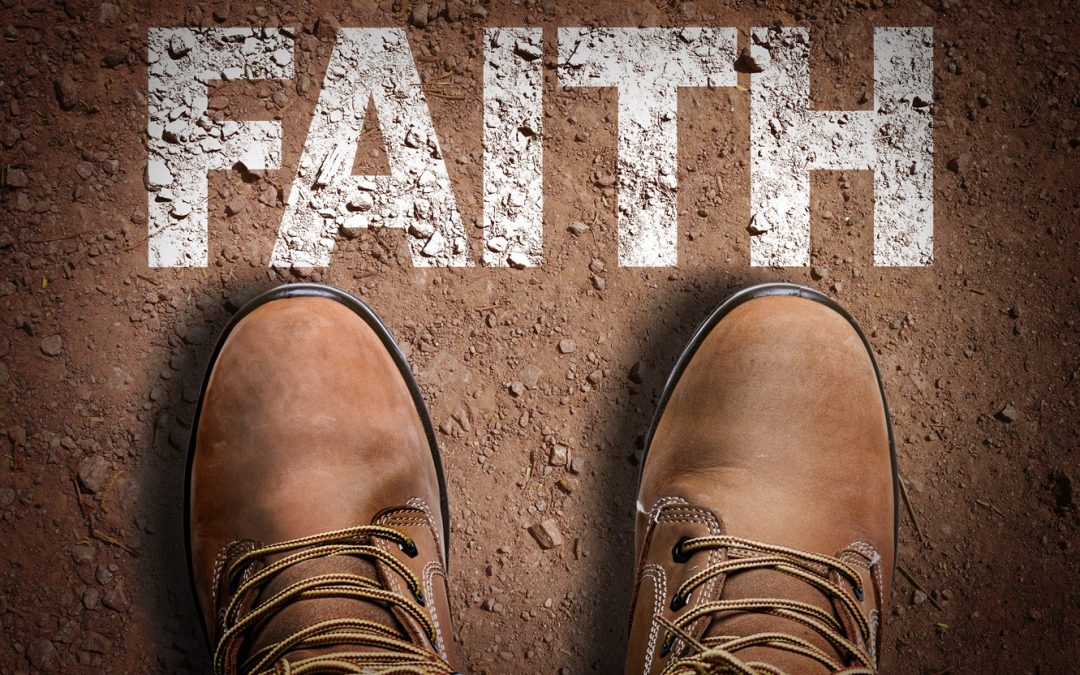
by Joseph | Jul 11, 2025 | Sharing
In the quiet moments of our faith journey, God sometimes whispers directions that our emotions often resist. Perhaps nowhere is this more evident than in the call to prepare – whether for ministry, for challenges ahead, or for serving others in times of need. Our feelings often push against such promptings because they often take us out of our comfort zone. We often outright dismiss the leading of God and ignore the call as unnecessary worry or perhaps question if we truly heard from God at all.
Consider Joseph in Egypt. When God revealed the coming famine through Pharaoh’s dreams, Joseph faced a monumental task. “Let Pharaoh take action to appoint overseers in charge of the land, and let him exact a fifth of the produce of the land of Egypt in the seven years of abundance” (Genesis 41:34). Imagine the doubts that must have assailed him. Who was he, a former prisoner, to implement such a vast program? What if the dreams were misinterpreted? What if people resisted giving up their grain?
Yet Joseph’s response teaches us something profound about moving forward despite our doubts. He didn’t wait until he felt completely confident. He didn’t allow his emotions – which surely included fear, uncertainty, and perhaps even memories of past betrayals – to override God’s clear direction.
“Now Joseph was thirty years old when he stood before Pharaoh” (Genesis 41:46). Young, likely still carrying emotional scars from his brothers’ betrayal and his time in prison, Joseph nevertheless moved forward. His obedience wasn’t based on feelings but on faith in the God who had proven faithful through every pit and prison.
This intersection of divine calling and human doubt often becomes most apparent when God calls us to prepare for future challenges. Like Noah building an ark before any rain fell, we may find ourselves called to take actions that don’t make emotional sense. Our feelings cry out, “But everything seems fine!” or “What will others think?”
Consider these words from Proverbs: “A prudent person sees danger and takes refuge, but the simple keep going and pay the penalty” (Proverbs 22:3). Notice it doesn’t say the prudent person feels like taking refuge – they simply act on what they see, guided by wisdom rather than emotion.
The paralysis of doubt often manifests in three deceptive questions:
First: “Did I really hear from God?” This was likely the same doubt that plagued Noah during those long years of ark-building under clear skies. Yet Scripture teaches us that God’s voice becomes clearer as we obey: “Therefore do not be foolish, but understand what the Lord’s will is” (Ephesians 5:17). Understanding often follows obedience, not the other way around.
Second: “What if I’m overreacting?” Joseph could have easily dismissed the dreams as mere coincidence. After all, Egypt had survived famines before. But wisdom often requires acting before the crisis is evident: “The wise man looks ahead. The fool attempts to fool himself and won’t face facts” (Proverbs 14:8, TLB).
Third: “What will others think?” This doubt particularly stings when preparing for uncertain futures. Yet Scripture repeatedly shows God calling people to prepare in ways that seemed foolish to others. “By faith Noah, being warned by God about things not yet seen, in reverence prepared an ark” (Hebrews 11:7).
Joseph’s story provides a masterclass in overcoming these doubts. Notice his approach:
- He focused on God’s revelation rather than his emotions. When interpreting Pharaoh’s dreams, Joseph immediately pointed to God: “It is as I have spoken to Pharaoh: God has shown to Pharaoh what He is about to do” (Genesis 41:28).
- He acted with wisdom rather than waiting for feelings of certainty. “The plan seemed good to Pharaoh and to all his servants” (Genesis 41:37). Joseph didn’t wait until everyone felt emotionally ready – he implemented necessary actions based on divine wisdom.
- He prepared systematically despite uncertain timing. “Let them gather all the food of these good years that are coming” (Genesis 41:35). Joseph didn’t allow the abundance of the present to lull him into complacency about the future.
But perhaps most importantly, Joseph understood something we often forget: Preparation isn’t just about survival – it’s about service. “The people of all the earth came to Egypt to buy grain from Joseph” (Genesis 41:57). His obedience to prepare, despite his doubts, positioned him to save not only Egypt but surrounding nations, including the very family that had betrayed him.
This reveals a crucial truth: When God calls us to prepare, it’s rarely just for our own benefit. Like Joseph, our obedience in preparing – whether spiritually, materially, or both – often becomes the means through which God provides for others.
“For if you remain silent at this time, relief and deliverance will arise for the Jews from another place” (Esther 4:14). Mordecai’s words to Esther remind us that God’s purposes will be accomplished – the question is whether we will overcome our doubts to participate in His plan.
Moving forward despite our doubts requires a fundamental shift in perspective. Instead of asking, “Do I feel certain enough?” we must ask, “Is God faithful enough?” The answer to the second question never changes, even when our feelings do.
Consider this promise: “For God has not given us a spirit of timidity, but of power and love and discipline” (2 Timothy 1:7). Notice the three counterweights to fear: power (God’s ability working through us), love (focus on serving others), and discipline (action based on truth rather than feelings).
When God calls you to prepare – whether for ministry, for challenges ahead, or for serving others – remember:
Your emotions are real, but they’re not reliable guides. “Trust in the Lord with all your heart and do not lean on your own understanding” (Proverbs 3:5).
Your doubts don’t disqualify you. Joseph served God effectively despite his youth and past trauma. “Let no one look down on your youthfulness” (1 Timothy 4:12).
Your obedience matters more than your feelings. “But prove yourselves doers of the word, and not merely hearers who delude themselves” (James 1:22).
Let us pray: Father, like Joseph, help us to move forward in obedience when You call us to prepare, even when our emotions resist. Give us wisdom to distinguish between anxiety-driven fear and Your divine prompting. Help us to act not based on our feelings but on Your faithfulness. Guide us in preparing not just for our own security but for the service of others. And remind us that, like Joseph, our current trials may be preparation for future ministry. In Jesus’ name, Amen.

by Joseph | Jul 11, 2025 | Sharing
Prepare to Battle The Subtle Deception
Have you ever noticed how our emotions can become like Pharaoh’s taskmasters? They crack their whips, demanding our obedience, insisting we listen to their voices above all others – even God’s. Perhaps most dangerously, they often disguise themselves as divine guidance, wrapping our own comfortable feelings in spiritual language to justify the paths we already want to take.
“The heart is more deceitful than all else and is desperately sick; who can understand it?” (Jeremiah 17:9). How often do we say “God is leading me” when really we’re following the familiar pathway of our emotions? We might feel anxious about a decision and interpret that anxiety as “God’s warning,” when it’s simply our fear of change speaking. Or we might feel peace about a choice that goes against God’s Word, mistaking our emotional comfort for divine approval.
Understanding Our Emotional History
Our emotions don’t exist in a vacuum. They’re shaped by every experience we’ve lived through, every wound we’ve suffered, every victory we’ve celebrated. “Remember the former things long past” (Isaiah 46:9) isn’t just about historical events – it’s a recognition that our past experiences color how we interpret the present.
Satan, the master deceiver, understands this all too well. He knows exactly how to play upon our emotional history to create confusion and doubt. Consider Eve in the garden. The serpent didn’t begin with a direct lie but with a subtle question that stirred emotional uncertainty: “Indeed, has God said…?” (Genesis 3:1). He used this emotional manipulation to make Eve question what she knew to be true.
Learning from Joseph’s Journey
Consider Joseph, thrown into a pit by his own brothers. Imagine the crushing weight of betrayal, the suffocating fear, the burning anger that must have settled in his heart. These emotions had every right to become his masters. How easy it would have been for him to say, “God is telling me to take revenge” when it was really his hurt speaking. Yet somehow, in that dark pit and later in prison, Joseph learned to distinguish between his emotional voice and God’s true leading.
“But the Lord was with Joseph and extended kindness to him” (Genesis 39:21). Notice the profound truth here – God’s presence didn’t prevent Joseph’s imprisonment, but it gave him clarity to see beyond his emotions. While his feelings screamed “despair!” and demanded “revenge!”, Joseph chose to listen to a different voice.
The Enemy’s Manipulation
Look at how the enemy worked against Peter. Jesus warned him, “Satan has demanded to sift you like wheat” (Luke 22:31). What was this sifting? It wasn’t physical torture but emotional manipulation. Satan used Peter’s fear, his pride, and his past experiences to lead him to deny the very Lord he loved. The enemy knew exactly which emotional triggers would cause Peter to falter.
“The one who trusts in his own heart is a fool” (Proverbs 28:26). Why such strong words? Because our emotions, shaped by our experiences and often manipulated by the enemy, can be desperately unreliable. Think of how David’s emotions swung from confident praise to deep despair, sometimes in the same psalm. The difference was whether he was letting his feelings interpret his circumstances or letting God’s truth interpret his feelings.
The Jezebel Pattern: When Emotions Take Control
This struggle finds a darker mirror in the story of Jezebel. When Naboth refused to sell his vineyard, we see Jezebel consumed by rage and pride. These emotions weren’t just feelings; they became controlling forces that she likely mistook for righteous guidance. “So she wrote letters in Ahab’s name and sealed them with his seal” (1 Kings 21:8). Her emotions didn’t just influence her – they possessed her, masquerading as justified actions.
How often do we find ourselves writing similar letters in our hearts? When anxiety whispers, “You must control this situation,” do we mistake it for God’s guidance? When shame declares, “You’ll never be enough,” do we accept it as divine truth? When bitterness insists, “You have the right to stay angry,” do we confuse it with God’s justice?
Finding God’s Still, Small Voice
Remember Elijah’s experience? God wasn’t in the wind, earthquake, or fire – all dramatic, emotional events. Instead, He spoke in “a still, small voice” (1 Kings 19:12, NKJV). This teaches us something crucial about distinguishing God’s leading from emotional reactions. While emotions are often loud and demanding, God’s voice tends to be quiet, steady, and consistent with His Word.
“Trust in the Lord with all your heart and do not lean on your own understanding” (Proverbs 3:5). Notice it doesn’t say “trust in your peaceful feelings” or “follow your heart.” God’s leading often requires us to step beyond our emotional understanding.
Breaking Free
Breaking free from emotional bondage begins with recognition. We must honestly ask ourselves: Am I following God’s voice or am I following my feelings and calling it God’s voice? Like the Israelites who said, “We remember the fish which we used to eat free in Egypt” (Numbers 11:5), we often prefer the familiar slavery of our emotions to the uncertain freedom of true divine guidance.
The beautiful truth is that God doesn’t ask us to suppress our emotions but to surrender them to Him. David shows us this path: “Pour out your heart before Him; God is a refuge for us” (Psalm 62:8). We bring our emotions to God, but we don’t let them make our decisions.
Finding True Peace
“For you have not received a spirit of slavery leading to fear again, but you have received a spirit of adoption as sons” (Romans 8:15). True peace comes not from following our comfortable emotions but from submitting them to our loving Father’s guidance. When we learn to distinguish His voice from our emotional echo chamber, we find a freedom that no feeling can give.
Prayer:
Father, forgive us for often mistaking our emotional comfort for Your guidance. Help us to discern between our feelings and Your voice. Like Joseph, help us see Your presence even when our emotions cloud our vision. Holy Spirit, grant us discernment to recognize when the enemy is manipulating our emotional history. Help us to still our rushing feelings so we can hear Your whisper clearly. Heal the wounds of our past that Satan would use against us, and anchor us in Your unchanging truth rather than our changing emotions. In Jesus’ name, Amen.
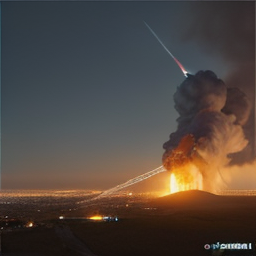
by Joseph | Jul 11, 2025 | Sharing
There’s a stirring in the hearts of believers around the world today – a sense that we’re witnessing the unfolding of ancient prophecies before our eyes. As we watch nations aligning in ways that echo Ezekiel’s prophecies of Gog and Magog, as we see the unprecedented movement of peoples and the explosion of knowledge that Daniel foresaw, many of us feel a quiet certainty that we’re living in extraordinary times.
Yet even as we witness these things, our hearts can remain at peace, anchored in the unwavering promises of God. “When these things begin to take place,” Jesus told us, “straighten up and lift up your heads, because your redemption is drawing near” (Luke 21:28). What profound comfort these words bring! Even as we see the signs of challenging times ahead, we’re reminded that every shifting shadow in our world points toward the dawning of our greatest hope – the return of our Lord.
The prophecies we see potentially unfolding – the coalitions of nations from the north, the increasing tensions around Israel, the rapid advance of technology enabling global control systems – these weren’t revealed to frighten us, but to prepare us. Just as God warned Joseph about the coming famine in Egypt, these prophetic insights are gifts from a loving Father who wants His children to be ready for what lies ahead.
In times like these, I’m often reminded of Noah. Scripture tells us he spent decades building the ark under clear skies, likely enduring mockery from those who couldn’t imagine the flood to come. Noah’s preparation wasn’t born of fear, but of faith – a faith that moved him to act on God’s warning while continuing to live and work in hopeful obedience. “By faith Noah, being warned by God about things not yet seen, in reverence prepared an ark for the salvation of his household” (Hebrews 11:7).
We’re called to a similar wisdom today. The signs of the times – whether in the realignment of nations prophesied in Ezekiel 38-39, the increasing chaos in our world, or the technological developments that could enable the systems described in Revelation – these call us not to panic, but to prayerful preparation. Like Noah, we’re invited to take practical steps while keeping our eyes fixed firmly on God’s promises.
But what does this preparation look like? It begins, always, with our spiritual foundation. Jesus told the parable of the wise and foolish virgins (Matthew 25:1-13) to emphasize the importance of being spiritually prepared for His return. The oil in their lamps represents the Holy Spirit and our ongoing relationship with God – something that can’t be borrowed or bought at the last minute. In these days, more than ever, we need to be deeply rooted in God’s Word, steadfast in prayer, and connected to the body of Christ.
Yet we also see throughout Scripture that spiritual wisdom often leads to practical action. Joseph’s close walk with God led him to store grain for seven years. The Proverbs 31 woman’s spiritual wisdom manifested in practical preparation for her household’s needs. The early church, warned of coming famine, organized relief efforts before the crisis hit. These examples remind us that trusting God doesn’t mean sitting idle – it means acting on the wisdom He provides.
Perhaps you’ve felt the Holy Spirit’s gentle nudge to prepare – to set aside resources, to learn new skills, to strengthen community bonds. These promptings aren’t at odds with faith; they’re often expressions of it. Just as a parent provides for their children’s future needs, our heavenly Father often leads us to prepare for challenges He knows lie ahead.
But here’s the beautiful truth that sets believers apart: our preparation, while practical, is never merely about survival. It’s about being positioned to serve, to share, to be light in darkness. When we prepare with wisdom and faith, we’re able to be like the early church in Acts, who supported one another and reached out to their communities in times of crisis.
The prophecies we see unfolding remind us that time may be short, but they also remind us that God is sovereign. He who guided His people through the Red Sea, preserved them in exile, and protected the early church through persecution, remains just as faithful today. As we see the day approaching, we can prepare with hope, knowing that every sign pointing to troubled times also points to our coming redemption.
Friends, as we navigate these times together, let’s hold fast to the promise of Romans 15:13: “Now may the God of hope fill you with all joy and peace in believing, so that you will abound in hope by the power of the Holy Spirit.” Let’s prepare with wisdom but without fear, knowing that whatever lies ahead, our God goes before us. Let’s strengthen ourselves in Scripture, in prayer, in community, and in practical readiness – not out of anxiety, but out of faith in the One who holds tomorrow.
And as we do, may we remember that our ultimate preparation isn’t for tribulation, but for triumph. For while we may see the shadows lengthening, we know the dawn is coming. Every prophecy fulfilled, every sign manifested, brings us one step closer to that glorious day when our faith becomes sight and our preparation gives way to celebration.
Father, grant us wisdom for these times. Help us to prepare with prudence while trusting in Your providence. Keep our hearts at peace even as we take action, knowing that You are our ultimate security. Use us to be lights in the gathering darkness, ready to serve and share the hope we have in Christ. And strengthen our faith, knowing that every sign of the times is also a sign that points to Your faithful promises. In Jesus’ name, Amen.
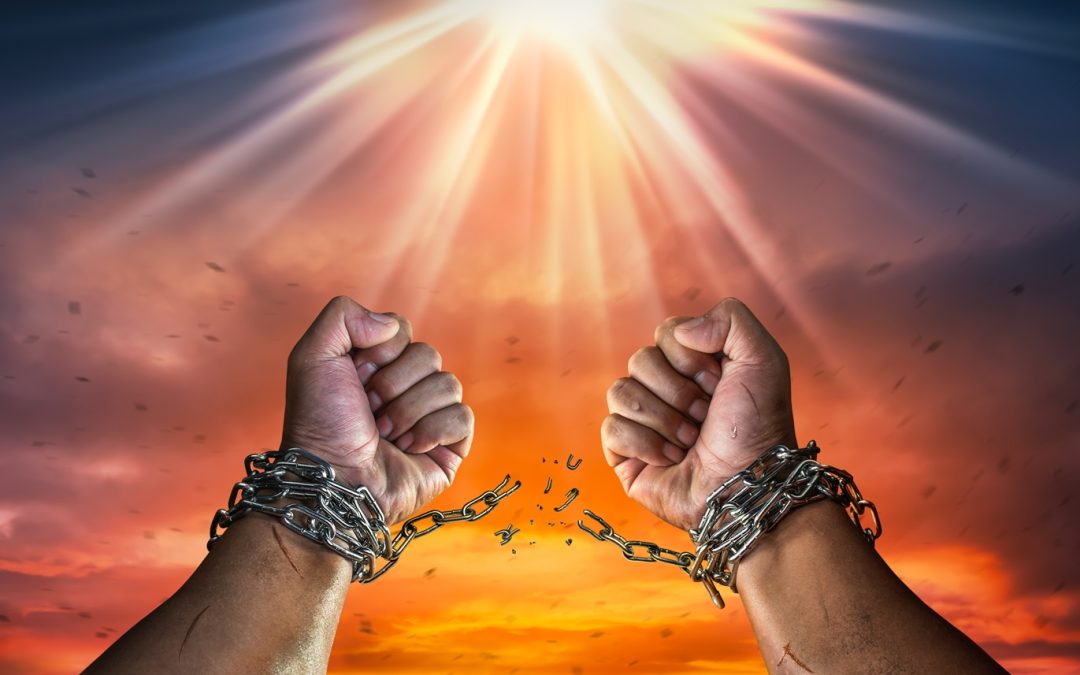
by Joseph | Jul 11, 2025 | Sharing
Scripture Reading:
“For the weapons of our warfare are not of the flesh, but divinely powerful for the destruction of fortresses. We are destroying arguments and every lofty thing raised up against the knowledge of God, and we are taking every thought captive to the obedience of Christ.” — 2 Corinthians 10:4-5 (NAS)
Understanding the Battles we are Facing
Today, we face more than just the challenges of daily life. We are living in a world saturated with demonic influences, where deception, lies, and strongholds seem to dominate the minds and hearts of many. You may feel this pressure yourself, as if an unseen force is pulling you away from the truth, sowing seeds of fear, discouragement, and division. This is not a coincidence—this is spiritual warfare, and it is intensifying.
In these last days, as we prepare for uncertain times, it’s crucial not only to stock our pantries with food and water but also to prepare our hearts and minds against the enemy’s tactics. The call to be spiritually prepared is just as urgent as any physical preparation. We must tear down the demonic strongholds that the enemy is building up in our lives and stand firm in the truth of God’s Word.
What Is a Demonic Stronghold?
A stronghold is like a fortress—a deeply rooted belief or mindset that stands in opposition to God’s truth. The enemy uses strongholds to keep us trapped in fear, sin, and lies. Strongholds can form through unforgiveness, anxiety, pride, or addiction. They can develop when we accept false beliefs about ourselves or God, giving Satan a foothold in our lives.
Imagine a castle built stone by stone. Each stone represents a lie or sinful habit, stacked higher and higher until it forms a fortress, hard to penetrate. The enemy whispers lies like: “You are not good enough,” “God can’t forgive that sin,” or “You will never change.” Over time, these lies solidify, becoming a stronghold that keeps us in bondage.
But there is good news: these strongholds can be torn down through the divine power given to us in Christ.
The Spiritual Weapons We Have
The Bible tells us that our battle is not against flesh and blood but against spiritual forces of wickedness (Ephesians 6:12). We cannot fight demonic strongholds with human strength, self-help books, or positive thinking alone. We need spiritual weapons—tools that God has given us for victory.
- The Truth of God’s Word:
- Satan’s strongholds are built on lies, so the first step to breaking them is confronting those lies with the truth. The Word of God is our sword (Ephesians 6:17), piercing through the deceptions of the enemy.
- When you find yourself believing the lie, “God doesn’t care about me,” counter it with Scripture: “Cast all your anxiety on Him, because He cares for you” (1 Peter 5:7 NAS).
- Prayer and Fasting:
- Jesus taught that certain strongholds can only be broken through prayer and fasting (Matthew 17:21). Fasting is a powerful way to humble ourselves before God, making our prayers even more effective.
- When we fast and pray, we are declaring that our dependence is on God alone. We empty ourselves so that He can fill us with His power and truth.
- Repentance and Confession:
- Strongholds often have their roots in unconfessed sin. When we hold on to sin, we give the enemy legal ground to establish a foothold in our lives.
- 1 John 1:9 (NAS) says: “If we confess our sins, He is faithful and righteous to forgive us our sins and to cleanse us from all unrighteousness.” Confessing our sins is like removing a stone from the enemy’s fortress.
- Taking Thoughts Captive:
- The battlefield is in the mind. 2 Corinthians 10:5 instructs us to take every thought captive to the obedience of Christ. When a thought comes that does not align with God’s truth, reject it. Replace it with what God says.
- The enemy will often attack our minds with fear, doubt, and confusion. If we let these thoughts linger, they can become strongholds. Instead, declare, “I have the mind of Christ” (1 Corinthians 2:16).
The Call to Be Prepared
In these times, preparedness is not just about storing food and supplies—it is about fortifying our spiritual defenses. Jesus warned us about the increasing deception that would come in the last days (Matthew 24:4-5). As the days grow darker, we must be vigilant and spiritually prepared.
Physical preparation without spiritual preparation is incomplete. You may have a well-stocked pantry, but if your heart and mind are vulnerable to the enemy’s lies, your spiritual house will crumble. The story of the wise and foolish builders in Matthew 7:24-27 serves as a powerful reminder. Only the house built on the rock of God’s truth can withstand the storm.
Facing Today’s Demonic Influences
The demonic influences in today’s world are not hidden; they are in plain sight, infiltrating our media, our schools, our workplaces, and even our homes. The enemy is working overtime to sow seeds of fear, confusion, and hopelessness. We see this in the rise of anxiety, depression, addiction, and societal chaos.
As believers, we must stand firm. The enemy may try to build strongholds in our lives, but we have the power to tear them down through Christ. Just as Joseph prepared Egypt for seven years of famine (Genesis 41), we must prepare ourselves and our families spiritually for the coming trials. Joseph’s wisdom saved a nation, but it was his spiritual discernment and obedience to God that guided his actions.
Today, God is calling us to a Joseph awakening—a time of preparation, discernment, and faith. We cannot rely on the government, society, or even our own strength to save us. Our hope and trust must be anchored in Christ alone.
Breaking Free from Strongholds
You may be feeling the weight of a stronghold today. Perhaps it is an addiction, a fear that paralyzes you, or a sin that you cannot seem to break free from. Know this: the same power that raised Jesus from the dead is available to you right now (Romans 8:11).
Take action today:
- Identify the stronghold: What lies or patterns are holding you back? Write them down.
- Declare God’s truth: Find Scriptures that counter these lies. Speak them out loud over your life.
- Pray for deliverance: Ask God to tear down these strongholds. If necessary, seek the help of a mature believer or pastor to pray with you.
- Prepare your heart daily: Just as you might stock supplies for an emergency, fill your heart and mind with the Word of God every day.
Closing Prayer
Heavenly Father, we thank You for the power and authority You have given us in Christ. We declare that no stronghold of the enemy can stand against Your truth. Help us to see the lies that have taken root in our minds and hearts. Give us the strength to confront them with Your Word and the courage to tear them down. As we prepare for the physical challenges of these times, help us also to prepare spiritually, standing firm against the enemy’s attacks. We trust in Your promise that greater is He who is in us than he who is in the world. In Jesus’ mighty name, we pray. Amen.
Reflection: What strongholds has the enemy built in your life? Take time today to seek the Lord in prayer and ask Him to reveal any lies or deceptions you’ve believed. Write them down and find Scriptures that speak truth into those areas. Prepare yourself not just physically, but spiritually, for the days ahead. God is with you, and in Him, you have the victory.

by Joseph | Jul 11, 2025 | Sharing
“Yet you do not know what your life will be like tomorrow. You are just a vapor that appears for a little while and then vanishes away.” – James 4:14 (NAS)
Have you ever watched someone blow out birthday candles and suddenly felt your heart sink? Another year gone. Another set of 365 days vanished like smoke. Time slips through our fingers like water, impossible to grasp or hold onto. Yet we often live as if we have an endless supply.
Today, as I was getting ready for work it really impacted me that there are so many minutes, hours, and years behind me. I’ve always thought carefully about the time we have – and always tried to cherish each moment with the people I love. Making the effort to really honor each moment still didn’t keep the time from rushing past me. The thoughts and memories of my children seem like yesterday. How can years have slipped by so quickly?
I am thankful for an eternity of time – that flows beyond this earthly life.
The Wake-Up Call We All Need
Picture this: You’re scrolling through your phone, maybe killing time while waiting in line for coffee. Suddenly, you see a post from an old friend – someone your age, someone who, like you, thought they had plenty of time. Except they didn’t. Their story ended mid-sentence, leaving behind half-written texts, uncompleted bucket lists, and words left unsaid to those they loved.
“So teach us to number our days, that we may present to You a heart of wisdom.” – Psalm 90:12 (NAS)
This isn’t meant to scare you – it’s meant to wake you up. Each of us has exactly 1,440 minutes every day. No more, no less. The richest billionaire can’t buy an extra minute. The most brilliant scientist can’t invent more time. Time is the great equalizer, but it’s also our most overlooked blessing.
Joseph’s Journey: When Minutes Feel Like an Eternity
Consider Joseph, thrown into a pit by his own brothers. Can you imagine those minutes? The betrayal burning in his chest, the darkness pressing in, each second stretching like an eternity as he waited to learn his fate. Those minutes must have felt like years:
“They took him and threw him into the pit. Now the pit was empty, without any water in it.” – Genesis 37:24 (NAS)
But here’s the thing about Joseph’s story that we often miss: he didn’t know he was in the middle of a story that would save nations. He didn’t know that each painful minute was building toward something greater. All he knew was that time was passing, and he had choices to make about how to use it.
The Minutes That Changed Everything
Think about these pivotal moments in Joseph’s life:
- The minutes he spent choosing forgiveness over bitterness in prison
- The seconds it took to interpret Pharaoh’s dream that would save Egypt
- The moment he chose to reveal himself to his brothers, trading vengeance for reconciliation
“As for you, you meant evil against me, but God meant it for good in order to bring about this present result, to preserve many people alive.” – Genesis 50:20 (NAS)
The Reality Check We All Need
Let’s get painfully honest for a moment. Think about yesterday – can you account for all 1,440 minutes? How many were spent:
- Scrolling mindlessly through social media?
- Putting off that important conversation because it felt awkward?
- Saying “we’ll catch up soon” to people you truly miss?
- Waiting for the “perfect time” to pursue that God-given dream?
“Making the most of your time, because the days are evil.” – Ephesians 5:16 (NAS)
The Brutal Math of Time
Here’s some math that might keep you up tonight: If you’re lucky enough to live to 80, you have about 29,200 days total. Now subtract your current age. How many days are left? Now consider:
- How many more times will you get to hug your parents?
- How many more summers do you have with your kids before they’re grown?
- How many more chances will you have to tell someone about Jesus?
“For what is your life? It is even a vapor that appears for a little time and then vanishes away.” – James 4:14 (NAS)
The Urgency of Now
Joseph’s story teaches us that preparation can’t wait. When God revealed seven years of plenty followed by seven years of famine, Joseph didn’t procrastinate. He acted immediately:
“Let Pharaoh take action to appoint overseers in charge of the land, and let him exact a fifth of the produce of the land of Egypt in the seven years of abundance.” – Genesis 41:34 (NAS)
This wasn’t just about storing grain – it was about recognizing that time is a gift that demands immediate action. Joseph understood what we often forget: tomorrow’s opportunities require today’s preparation.
The People Factor: What Really Matters
Think about Joseph’s reunion with his father Jacob. After years of separation, thinking his son was dead, Jacob finally held Joseph again:
“Then Joseph fell on his father’s neck and wept on his neck a long time.” – Genesis 46:29 (NAS)
How many of us have people in our lives right now that we need to “fall on their neck and weep” with? How many relationships are we taking for granted, assuming there will always be another day, another chance, another tomorrow?
Making Minutes Count: Practical Steps
- Start Today’s Revolution
- Write down the names of three people you need to prioritize
- Schedule specific times to connect with them this week
- Turn off notifications during these dedicated times
- Prepare Like Joseph
- What skills do you need to develop for tomorrow’s challenges?
- What spiritual disciplines need attention now?
- What relationships need investment today?
- Live with Eternal Perspective
- How will your use of time today impact eternity?
- What legacy are you building with your minutes?
- Where are you storing your treasures?
A Prayer for Time’s Stewardship
Father, the thought of time’s swift passage brings both grief and gratitude to our hearts. We grieve the minutes we’ve wasted, the opportunities we’ve missed, the relationships we’ve neglected. But we’re grateful that You’ve awakened us to time’s precious nature. Like Joseph, help us to see that every minute – even the painful ones – can be used for Your glory and others’ good.
Lord, give us wisdom to number our days. Give us courage to have the hard conversations now. Give us strength to prepare for tomorrow’s challenges today. And most of all, give us hearts that beat in rhythm with Your eternal purposes, making every minute count for Your kingdom.
“Teach us to number our days, that we may gain a heart of wisdom.” – Psalm 90:12 (NAS)
Remember: The next minute you have isn’t guaranteed, but it’s a gift. How will you spend it?

by Joseph | Jul 11, 2025 | Sharing
“Before I formed you in the womb I knew you, and before you were born I consecrated you…” – Jeremiah 1:5 (NASB)
The weight of rejection pressed down like a stone lid on Joseph’s makeshift prison. Thrown into a pit by his own brothers, sold into slavery, falsely accused, and forgotten in prison—each rejection seemed to echo the same devastating message: “You don’t matter.” Yet in the divine narrative, these very rejections were laying the foundation for one of history’s greatest acts of preservation.
In our own time of unprecedented prosperity and looming uncertainty, Joseph’s story whispers an urgent message to those with ears to hear. His journey from the pit to the palace carries a timely warning about preparation, purpose, and the dangerous comfort of abundance.
When Rejection Becomes Revelation
“For the Lord disciplines the one He loves, and chastises every son whom He receives.” – Hebrews 12:6 (NASB)
Consider how God’s preparation of Joseph defied all human logic. Each painful rejection actually positioned him closer to his destiny. In Potiphar’s house, rejection through false accusation led him to prison—where he would meet the cupbearer who would eventually remember him to Pharaoh. What appeared to be setbacks were actually divine setups, orchestrating circumstances for a revelation that would save nations.
This pattern reveals a profound truth: God often allows rejection to precede revelation. Like a master sculptor removing excess stone, each painful chip and cut serves to reveal the masterpiece within. Joseph’s rejections weren’t random acts of misfortune; they were precise instruments of divine preparation.
The Deceptive Face of Prosperity
“The prudent sees danger and hides himself, but the simple go on and suffer for it.” – Proverbs 22:3 (NASB)
Egypt’s seven years of abundance mirror our own era in haunting ways. Like us, they lived in a time of unprecedented prosperity. Markets flourished, granaries overflowed, and the very thought of scarcity seemed absurd. Yet it was precisely in this moment of abundance that God revealed the approaching famine.
The parallels to our time are striking. We too live in an age of remarkable plenty, where marketplace shelves groan under the weight of endless options, and digital abundance creates an illusion of inexhaustible resources. But Joseph’s story carries a warning: Prosperity can be a veil that blinds us to approaching storms.
The Hidden Grace of Preparation
“Whatever you do, do your work heartily, as for the Lord rather than for men.” – Colossians 3:23 (NASB)
What’s often overlooked in Joseph’s story is how God used seemingly mundane experiences to prepare him for his destiny. Managing Potiphar’s household taught him administration. Overseeing prison operations developed his leadership. Even learning Egyptian culture and language—necessary for survival—became essential tools for his future role.
In this light, our own daily responsibilities take on new significance. Today’s faithful stewardship of small things may be tomorrow’s qualification for greater purpose. The skills we develop now, the resources we steward, the relationships we build—all may be preparation for a divine assignment we cannot yet see.
The Urgency of Today’s Mandate
“Making the most of your time, because the days are evil.” – Ephesians 5:16 (NASB)
Joseph had a clear timeline—seven years to prepare for catastrophe. We may not have such clear markers, but the urgency remains. The window for preparation never looks crucial until it’s closing. Like the five foolish virgins who failed to prepare their oil, we risk missing our moment if we mistake prosperity for permanence.
This isn’t a call to fear, but to faithful stewardship. Joseph’s preparation wasn’t driven by panic but by purpose. He understood that tomorrow’s provision often depends on today’s preparation. His systematic approach—storing grain, establishing distribution centers, creating sustainable systems—wasn’t just agricultural planning; it was divine wisdom in action.
The Redemption of Rejection
“The stone which the builders rejected has become the chief corner stone.” – Psalm 118:22 (NASB)
Perhaps the most powerful aspect of Joseph’s story is how God redeemed every rejection. The pit experience developed his perseverance. False accusations built his integrity. Prison strengthened his character. Each painful rejection became a building block in God’s preparatory foundation.
For us today, this means our past rejections may be preparation for future assignments. Those experiences that seemed to disqualify us might actually be qualifying us for a purpose we cannot yet see. Like Joseph, our setbacks may be setups for a greater story of preservation and provision.
A Call to Watchful Preparation
“Therefore be careful how you walk, not as unwise men but as wise, making the most of your time, because the days are evil.” – Ephesians 5:15-16 (NASB)
The time for preparation is now, while resources are abundant and options are available. This preparation must be holistic—spanning our spiritual, practical, and relational lives. Like Joseph, we’re called to steward our resources with wisdom, develop our gifts with diligence, and maintain our integrity with vigilance.
The goal isn’t survival but service. Joseph’s preparation ultimately positioned him to preserve not just his own family but entire nations. Our own preparation may likewise be for purposes greater than personal preservation.
Prayer for Such a Time as This
Father, grant us Joseph’s wisdom to prepare in times of plenty and his courage to act with urgency. Help us see our past rejections as training grounds for future assignments. Give us discernment to recognize our window of opportunity and the discipline to act while there is still time. Make us faithful stewards of today’s resources for tomorrow’s needs. Let us be found ready, like Joseph, to serve Your purposes in our generation. In Jesus’ name, Amen.
“And we know that God causes all things to work together for good to those who love God, to those who are called according to His purpose.” – Romans 8:28 (NASB)
Remember: The same God who transformed Joseph from a rejected dreamer into Egypt’s savior is calling you to prepare. Your obedience today could be someone else’s provision tomorrow. The pit is not your end—it may be your beginning.

by Joseph | Jul 11, 2025 | Sharing
The story of Joseph in the Bible is one of overcoming adversity and mastering the art of preparedness. It’s not just an ancient narrative; it’s a timeless guide for navigating challenging circumstances and preparing for potential difficulties ahead. Joseph’s strategic approach to the crisis in Egypt can teach us how to prepare effectively today. By examining his actions, we uncover a five-step plan that helped him overcome immense obstacles and save an entire nation. Let’s explore this plan and see how we can apply it to our own lives to help us prepare.
Step 1: Start with Divine Insight
Joseph’s preparedness journey didn’t begin with a stockpile of goods; it started with seeking insight from God. When Pharaoh had troubling dreams that no one could interpret, Joseph boldly declared that understanding came only from God.
“Joseph answered Pharaoh, saying, ‘It is not in me; God will give Pharaoh a favorable answer.’” (Genesis 41:16 NAS)
Joseph recognized the importance of divine guidance in uncertain times. Instead of relying on human wisdom, he trusted God to reveal the truth. This is the foundational step for any effective plan. When we face potential crises, our first response should be to seek God’s wisdom, inviting Him into our planning process.
Takeaway:
Before making any major decisions, pause and pray. Ask God to reveal what is needed and how to proceed. Trusting in our own understanding can lead us astray, but seeking divine insight aligns our actions with God’s will.
Action Step:
Spend time in prayer and meditation today, asking God for wisdom and clarity in any areas of uncertainty in your life. Write down any thoughts or impressions that come to mind as you seek His guidance.
Step 2: Face Reality with Courage
Joseph’s interpretation of Pharaoh’s dreams was sobering: seven years of abundance would be followed by seven years of severe famine. Rather than shy away from this grim reality, Joseph faced it head-on and began planning.
“The dreams of Pharaoh are one and the same; God has told Pharaoh what He is about to do.” (Genesis 41:25 NAS)
Avoiding hard truths doesn’t change them. Joseph’s success was rooted in his willingness to confront the situation directly. He didn’t deny the coming crisis or hope it would resolve itself. He also didn’t get panicked or fearful. Instead, by Faith, he prepared a strategic plan.
Takeaway:
Acknowledging the reality of our circumstances is essential for effective preparation. It takes courage to face potential challenges, but ignoring them only leads to greater hardship.
Action Step:
Take an honest look at your current situation. Are there warning signs you’ve been ignoring? Whether it’s financial, health-related, or concerns about global events, make a list of potential issues you need to address.
Step 3: Store Up Wisely During Times of Plenty
During the seven years of abundance, Joseph gathered and stored grain, preparing for the famine that would follow. He didn’t squander the resources of plenty; he maximized them.
“So he gathered all the food of these seven years which occurred in the land of Egypt and placed the food in the cities.” (Genesis 41:48 NAS)
This proactive step was critical to Egypt’s survival. Joseph understood that preparation during times of abundance is key to overcoming future shortages. He set up storehouses and filled them diligently, making sure there was enough to sustain the nation through the lean years.
Takeaway:
When resources are plentiful, it’s easy to be wasteful or assume the good times will last forever. Instead, use periods of abundance as opportunities to save and prepare for the unexpected.
Action Step:
Evaluate your current resources. Are you using your financial, physical, and spiritual blessings wisely? Consider setting aside an emergency fund, stocking up on essential supplies, or learning new skills that may be valuable in times of scarcity.
Step 4: Work Diligently and Execute Your Plan
Planning without action is meaningless. Joseph not only created a plan; he carried it out with diligence. He didn’t cut corners or procrastinate but worked tirelessly to ensure the success of his preparedness efforts.
“Joseph stored up grain in great abundance like the sand of the sea, until he stopped measuring it, for it was beyond measure.” (Genesis 41:49 NAS)
Joseph’s dedication ensured that Egypt was ready when the famine struck. He didn’t leave things to chance; he worked with purpose and discipline. This step is a reminder that preparedness requires ongoing effort and commitment.
Takeaway:
The best plans require hard work and follow-through. Staying diligent, even when the task seems overwhelming, can make all the difference when challenges arise.
Action Step:
Review your current preparedness plans. Are there areas where you’ve stalled or lost momentum? Set small, achievable goals for the week ahead and focus on consistent progress.
Step 5: Be Generous and Use Your Preparedness to Help Others
When the famine hit, Joseph didn’t hoard the resources he had gathered. He opened the storehouses and provided for both the Egyptians and the surrounding nations, becoming a source of life and sustenance in a time of great need.
“When the famine was spread over all the face of the earth, then Joseph opened all the storehouses and sold to the Egyptians, and the famine was severe in the land of Egypt.” (Genesis 41:56 NAS)
Joseph’s preparedness wasn’t just for his own benefit; it was a means of serving others. His foresight and generosity saved countless lives. In the same way, our preparedness efforts should be guided by a heart of compassion. When we plan ahead, we not only protect ourselves but also position ourselves to help those in need.
Takeaway:
True preparedness is rooted in love and generosity. By sharing what we have stored, we reflect God’s heart and His provision for all people. Preparedness is not just about surviving; it’s about thriving together as a community.
Action Step:
Consider ways you can use your resources to help others. Whether it’s sharing food, offering a helping hand, or giving encouragement, look for opportunities to bless those around you. Make a list of people you could support if a crisis arises and pray for the chance to serve them well.
Conclusion
Joseph’s five-step plan provides a powerful example of how to navigate difficult times with faith, wisdom, and action. He sought divine guidance, faced reality with courage, stored up resources wisely, executed his plan diligently, and used his preparedness to bless others. In our world today, where uncertainties and challenges abound, we can follow Joseph’s blueprint to build a resilient life rooted in faith.
By trusting God’s wisdom, being proactive, and cultivating a spirit of generosity, we can overcome obstacles and help save not only our own families but also our communities. Let’s be like Joseph, preparing wisely so that we can stand strong in times of crisis and be a beacon of hope for those around us.
FAQ
1. Why is preparedness important in our faith journey?
Preparedness is a sign of wisdom and stewardship. It allows us to face challenges with confidence and serve others in need.
2. How can we seek God’s guidance like Joseph did?
We can pray, study Scripture, and ask the Holy Spirit to give us discernment and wisdom in our decision-making.
3. What resources should we be storing up?
Consider storing food, water, emergency supplies, financial reserves, and developing skills that may be needed in times of crisis.
4. How can we maintain diligence in our preparedness efforts?
Set clear goals, make a plan, and ask God for the strength to remain committed even when it feels difficult.
5. How can we use our preparedness to serve others?
Be generous and open-handed, sharing what you have stored with those in need, trusting that God will continue to provide as you give.
Prayer:
Lord, thank You for the example of Joseph. Help us to seek Your wisdom first and to act with courage and diligence as we prepare for whatever lies ahead. Teach us to store up wisely and to use what we have for the good of others. May our actions reflect Your love and provision in every season. Amen.

by Joseph | Jul 11, 2025 | Sharing
“But his bow remained firm, and his arms were agile, from the hands of the Mighty One of Jacob.” – Genesis 49:24 (NASB)
In our Instagram-filtered world, we often see life as a journey from struggle to success—a straight line from the pit to the palace. Yet Joseph’s story reveals a more nuanced truth: the real challenge isn’t just surviving the valleys or reaching the peaks—it’s maintaining spiritual equilibrium in both extremes.
The Danger of Defining Moments
Consider this: Which was Joseph’s defining moment? Was it the day his brothers threw him into the pit, or when Pharaoh placed his ring on Joseph’s finger? Our instinct says the promotion, but here’s the paradox: both moments carried equal spiritual danger.
“For we are His workmanship, created in Christ Jesus for good works, which God prepared beforehand so that we would walk in them.” – Ephesians 2:10 (NASB)
Joseph’s story isn’t just about rising from slavery to sovereignty; it’s about maintaining the same spiritual DNA in radically different circumstances. In the pit, he faced the temptation of despair. In the palace, he faced the seduction of self-sufficiency. Both extremes threatened to disconnect him from his divine purpose.
The Prosperity Paradox
“I know how to get along with little, and I also know how to live in prosperity; in any and every circumstance I have learned the secret of being filled and going hungry, both of having abundance and suffering need.” – Philippians 4:12 (NASB)
Here’s a thought that might challenge us: Was Joseph in more spiritual danger when he was interpreting dreams in prison or when he was controlling the ancient world’s food supply? Prosperity often does what persecution cannot—it subtly shifts our dependence from God to our own capabilities.
When Joseph stored grain during the seven prosperous years, he wasn’t just practicing good administration—he was demonstrating a profound spiritual truth: abundance requires more discipline than scarcity. In abundance, he remained the same Joseph who had learned dependence in the pit.
The Mathematics of Mercy
“But Joseph said to them, ‘Do not be afraid, for am I in God’s place?'” – Genesis 50:19 (NASB)
Consider this startling calculation: Joseph spent 13 years in slavery and prison, followed by seven years of abundance, then two years of famine before reuniting with his family. That’s 22 years of character formation before his moment of truth—facing his brothers.
The mathematical precision of God’s timing reveals something profound: steadfastness isn’t just about enduring hardship; it’s about becoming the kind of person who can handle both revenge and responsibility when the time comes.
The Strategic Silence of God
“Until the time that his word came to pass, the word of the LORD tested him.” – Psalm 105:19 (NASB)
One of the most overlooked aspects of Joseph’s story is God’s apparent silence. Unlike Abraham, Moses, or David, we never read of God speaking directly to Joseph. Yet Joseph’s life demonstrates something remarkable: steadfastness doesn’t require constant divine confirmations.
This carries a powerful message for us today: Sometimes God’s silence isn’t punishment—it’s preparation. Joseph learned to read God’s handwriting in the circumstances of his life, a skill more valuable than hearing occasional divine announcements.
The Preparation Principle
“A prudent person foresees danger and takes precautions.” – Proverbs 27:12 (NASB)
Joseph’s preparation for famine offers us a revolutionary perspective: preparation isn’t a lack of faith—it’s faith in action. Consider this fresh angle: The same Joseph who trusted God enough to interpret dreams also trusted God enough to build granaries.
This teaches us something profound about modern preparation:
- Financial wisdom isn’t faithlessness
- Strategic planning isn’t spiritual compromise
- Resource management isn’t lack of trust
Instead, these are expressions of the same faith that sustains us in trials.
The Steadfast Spectrum
“Therefore, my beloved brothers and sisters, be steadfast, immovable, always excelling in the work of the Lord, knowing that your labor in the Lord is not in vain.” – 1 Corinthians 15:58 (NASB)
Joseph’s life reveals that steadfastness operates on a spectrum:
- In the pit: steadfast hope
- In Potiphar’s house: steadfast integrity
- In prison: steadfast service
- In the palace: steadfast humility
- In prosperity: steadfast wisdom
- In power: steadfast mercy
Each phase required a different expression of the same core faithfulness.
The Modern Application Matrix
For today’s believers facing uncertain times, Joseph’s life offers a framework for balanced preparation:
- Spiritual Preparation:
- Develop pit-tested faith
- Build palace-proven character
- Maintain desert-deep devotion
- Practical Preparation:
- Create strategic reserves
- Develop multiple skill sets
- Build sustainable systems
- Relational Preparation:
- Cultivate trustworthy connections
- Maintain integrity in all dealings
- Practice preemptive forgiveness
The Counter-Cultural Calling
“And we know that God causes all things to work together for good to those who love God, to those who are called according to His purpose.” – Romans 8:28 (NASB)
Here’s a radical thought: What if God is calling us not just to survive coming challenges, but to become suppliers of hope and resources to others during them? Joseph’s preparation didn’t just save his family—it saved nations.
This perspective transforms our approach to preparation from survival to service, from stockpiling to stewardship.
The Future-Focused Faith
“For I know the plans that I have for you,’ declares the LORD, ‘plans for prosperity and not for disaster, to give you a future and a hope.” – Jeremiah 29:11 (NASB)
Joseph’s story teaches us that true steadfastness isn’t just about maintaining—it’s about becoming. Each circumstance in his life wasn’t just a test to endure but a tool to shape him into someone who could carry the weight of his calling.
Prayer for Steadfast Hearts
Father, give us Joseph’s steadfastness—not just to survive trials or handle success, but to maintain our spiritual equilibrium in both. Help us prepare with wisdom, not fear; to store up resources with generosity, not greed; and to face uncertainty with faith-filled strategy, not anxious stockpiling. Make us channels of Your provision for others in the times ahead. In Jesus’ name, Amen.
“But the one who endures to the end will be saved.” – Matthew 24:13 (NASB)
Remember: The same God who sustained Joseph through slavery, prison, and power is preparing you for your own divine appointments. Your steadfastness today isn’t just about survival—it’s about becoming the person God can trust with both trials and triumph tomorrow.











